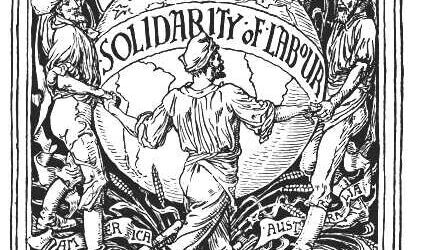H4F / NEXTGATe Call for Contributors: Sustainable Academia
What has history to do with the climate and biodiversity crisis? How should historical practice change in light of these crises? How can we walk the talk of sustainability on a daily basis in our working environments? How can we interpret the concept of sustainability within the academic sphere and widen its scope? How can we build more sustainable careers?
In short, how can we practice sustainable history?
***
In the past year, scholars have tried to grapple with such questions in light of COVID-19 and the wider climate crisis.
Drs. Andrea Gaynor, Carla Pascoe Leahy, Ruth Morgan, Daniel May, and Yves Rees, for instance, discussed the responsibilities of historians in a climate-impacted world in their 2020 working paper on the topic, subsequently endorsed by organizations such as the Australian Historical Association. Drs. Héloïse Berkowitz and Hélène Delacour talked about the power of slow science in their editorial for M@n@gement. Moreover, in “Undoing the Discipline: History in the Time of Climate Crisis and COVID-19” for the Journal for the History of Environment and Society, drs. Amanda Power, Iva Peša, and Eiko Honda drew on examples from African, Japanese, and medieval European environmental history to make a call for greater collaborative research and plural histories into the planetary past.
When the global pandemic forced academic societies around the world to cancel their meetings, the British Society for the History of Science decided to organize a Global Digital History of Science Festival instead. In this multi-authored article, titled ”Innovation in a Crisis: Rethinking Conferences and Scholarship in a Pandemic and Climate Emergency,” we learn about what worked (and what didn’t) about that decision, and some of the limitations and possibilities for the future of scholarship in digital environments. The virtual forum of the History of Science Society (HSS) and the Society for the History of Technology (SHOT) in October 2020, the digital conference of the British Association for American Studies (BAAS) in April 2021, and the virtual annual meeting of the Society of Historians of American Foreign Relations (SHAFR) in June 2021 also have shown that the online format holds merit. The reduced carbon pollution and increased accessibility–to name just two benefits–seem worth not just casting aside when looking at future conferences.
Such examples reveal significant, widespread desire among historians to adapt our ways of working in light of the climate crisis. This involves addressing practical questions about remote working, digital research, and online conferencing as well as conceptual challenges concerning who has the power to set agendas within the discipline and who can speak for historical knowledge in the wider public sphere.
These debates are not necessarily new: the importance of international networking has always favoured scholars working at wealthy institutions in the Global North; funding for digital humanities scholarship has often reinscribed these existing inequalities, failing to embrace the radical potential of new technologies to undermine power structures; even within wealthy institutions, postgraduate and early career researchers are rarely given the chance to shape the discipline at large. The current moment of crisis thus brings to the fore structural weaknesses that many have long been working to change. But can historians seize this chance to remake our discipline, and what should they be aiming for in doing so?
***
We are interested in exploring the theme of “Sustainable Academia” further in a new ongoing blog series in cooperation with the Next Generation Action Team (NEXTGATe) of the European Society for Environmental History. We invite contributions that reflect on the conditions of historians in Europe and beyond (especially those in early career stages), introduce visions for the field, and suggest concrete action in order to build more inclusive and supportive academic environments. Posts should be around 800-1200 words.
If you’re interested in contributing, send an email to contact@historiansforfuture.org introducing yourself & pitching an idea. For questions, please reach out directly to Sam Grinsell (samuel.grinsell@uantwerpen.be) or Elizabeth Hameeteman (ehameete@bu.edu).





